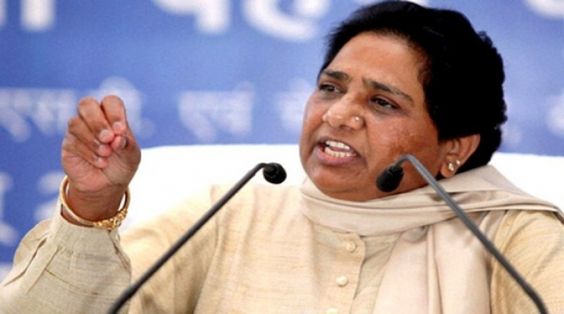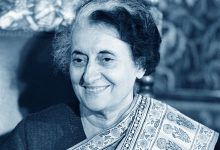Mayawati does not comprehend the new idiom of Dalit assertion. It is an open secret that during the rule of Narendra Modi, the fundamentals of Dalit assertion has undergone changes. Dalits are now increasingly asserting their individuality, which is a new form of Dalit politics. The new Dalit leadership has been trying to place the Dalit question in relation and contradiction between the capitalist economy and market forces that have been defining the Indian economy. A report, for Different Truths.
For BSP supremo Mayawati the 2019 Lok Sabha election is an opportunity to consolidate her grip on the dalits and untouchables of Uttar Pradesh and resuscitate her own image as a dalit champion. Unfortunately her impulsive political actions of the past have given her a negative hue.
But this time she does not intend to lend credence to the common impression about her of being a self-centered game spoiler. Notwithstanding other issues, which obfuscated the political scenario and equations in Uttar Pradesh, her hatred towards Samajwadi Party was often blamed for the defeat of opposition parties.
Nevertheless, wisdom has prevailed on her and she has come to realise that to regain her primacy in Indian politics and reclaim her position as the Dalit leader, she has to reach out to the other opposition leaders and adopt a flexible approach. Mayawati wants the grand alliance to take on BJP in 2019 to be reality and she is not averse to Congress joining it. She has also changed her approach to other political parties. The first indication of this change came after the SP won the two Lok Sabha by-elections from Uttar Pradesh. She explained that the SP, BSP cooperation was not for any vested interest but to provide relief from the anti-people policies of the BJP-led NDA government. She alleged that the alliance has made the BJP panicky and its leaders are making baseless statements against the alliance.
She also asked her party leaders to start preparations for the elections in right earnest and cautioned them to stay united as the BJP would try to create confusion and break the alliance. This is for the first time since 1996 that the BSP entered into an alliance with any party. After its alliance partner Congress failed to transfer its votes to the BSP in the 1996 assembly elections, Mayawati had announced that BSP would contest on its own.
The major challenge that Mayawati faces is the desertion from her rank and file. There are many leaders who have susceptible credentials. They have been too eager to jump to the BJP bandwagon at the earliest opportunity. In fact, BJP president Amit Shah has at a recent interaction with his state unit leaders instructed them to poach the BSP and ensure that most of the state leaders desert the party and join BJP.
If party sources are to be believed, Mayawati has already started screening candidates for the 2019 Lok Sabha elections. In consultation with the SP chief Akhilesh Yadav, she is busy giving structural shape to the proposed grand alliance in the state. Once the alliance becomes operative, candidates will be finalised. In the 2014 Lok Sabha polls, BSP came second in 34 constituencies but failed to win a single seat. It is believed that BSP would field own candidates in these seats and leave the remaining 46 for alliance partners.
Mayawati is seeking to project BSP as the modern face of the Dalit youths – the party which would bring about fundamental changes in governance and meet the aspirations of the Dalits. Little doubt that Dalits are the core of the party but for expanding the support base she has also started working on a ‘sarva-samaj’ (all communities) formula. Mayawati has been conscious of the rebellion of senior leaders, dearth of young faces and the rise of the Bhim Army, led by Chandrashekhar in West UP. The recent emergence of new young Dalit faces in Gujarat and their taking to war path against the feudal and upper caste elements has unnerved Mayawati. She is yet not clear about what should be the stance of the party towards the present political and economic developments taking place in the country. The 2019 election has provided her the right opportunity to revamp BSP from the grass root level and chisel its ideological approach. She is also contemplating to organize cadre camps for getting feedback from the ground level about the mood of the people and also to rope in more members to the BSP.
The main problem with Mayawati, however, is that she does not comprehend the new idiom of Dalit assertion. It is an open secret that during the rule of Narendra Modi, the fundamentals of Dalit assertion has undergone changes. Dalits are now increasingly asserting their individuality, which is a new form of Dalit politics. The new Dalit leadership has been trying to place the Dalit question in relation and contradiction between the capitalist economy and market forces that have been defining the Indian economy.
Dalits are increasingly striving to take charge of affairs in their own hands. But they are not clear of the mechanism to accomplish the task. Though caste continues to be the basic index of their assertion, the fact is they are disillusioned of caste politics. They nurse a strong feeling that their caste leaders have simply exploited them and used them for their personal gains. Mayawati and her brand of politics are being hotly debated over the social media. Various social Dalit organisations feel that they should adopt a broader political spectrum.
In the background of Hindu consolidation, lynching of Dalits and Muslims by the vigilante, and expansion of moral policing, there is a growing realisation among Dalits that they need to politically draw closer. Mayawati has to understand this complexity and evolve a new ideological trait. The 2017 election to Uttar Pradesh assembly has made it clear that Dalits look for a wider canvass. It is also significant that a paradigm shift is being witnessed in the attitude of the dalits and agricultural labourers towards the movements relating to their own problems.
The slogans that resound in the Dalit movement are indicative of a major dimensional change: ‘choice of food’, ‘right to land’, ‘swabhiman’ and ‘atmabhiman’ (self-respect), ‘azadi’ (freedom) and ‘dignity’. The new Dalit politics holds the key to some of the concerns and strivings. Young Dalit leader Mewani’s main demand is that every landless Dalit be given 5 acres of land. His movement is pitching for an alternative model of development, based on land reforms, where productivity and wealth gains will be made by redistributing land to those who will work on it themselves — land to the tiller. The state administration’s move to start mapping land around Saroda village was a huge victory for the movement.
Mewani rightly observed, “Even if we are not able to create a classless society … we ought to aim for a society that has less disparity”. Material issues are at the heart of Dalit politics. Their new slogan is quite honest: “You keep the cow’s tail, give us our land”.
Arun Srivastava
©IPA Service
Photo from the Internet





 By
By
 By
By

 By
By